Charleston Currents #12.27 | May 18, 2020
BIG BLOOM. We’re following last week’s magnolia photo with another, this one of a big, beautiful bloom submitted by retired librarian and active photographer Cynthia Bledsoe of West Ashley. You can almost smell the freshness of the bloom through the computer screen. Thanks, Cynthia!
 TODAY’S FOCUS: One Region releases business, restaurant guidelines for reopening economy
TODAY’S FOCUS: One Region releases business, restaurant guidelines for reopening economy
COMMENTARY, Brack: Crisis yields some good news for planet, neighbors
IN THE SPOTLIGHT: Charleston International Airport
NEWS BRIEFS: Charleston reps call for end to citizen arrests
FEEDBACK: Lines will be long on primary election day
MYSTERY PHOTO: Old picture of old place
CALENDAR: More county parks are open
S.C. ENCYCLOPEDIA: William Washington
Support local, independent journalism
We’re proud to offer Charleston Currents for free. For more than a dozen years, we’ve been the go-to place for insightful information and good news about the Lowcountry. And we love it as much as you do. But now, we can use your help. If you’ve been thinking of contributing to Charleston Currentsover the years, now would be a great time to contribute as we deal with the crisis. In advance, thank you.
— Andy Brack, editor and publisher
One Region releases guidelines for reopening economy
Staff reports | New phased guidelines for safely reopening the local economy provide detailed suggestions for small businesses and restaurants shut down for weeks due to coronavirus.
“It does little good for businesses to reopen only to find there is no business,” said Charleston Regional Development Alliance Chairman John Hagerty in a recent press release. “With the help of One Region’s re|IGNITE phase one plan and industry-specific guidelines, employers can utilize consistent safety precautions and standards appropriate for businesses of all sizes. Employees and customers need to feel confident their health and safety is paramount. Acting together as One Region, we can reopen quickly, safely, and rebuild our thriving economic and social community.”
The plan, called re|IGNITE, includes high-level recommendations on how and when to safely reopen in a phased approach along with health care metrics from MUSC and best practice workplace procedures. It also includes guidelines for the food and beverage industry as well as small businesses deciding to reopen. Additional industry-specific guidelines will be released in the coming weeks.
Among guidelines released last week for small businesses are to sanitize high-traffic and contact areas; make sanitizer and disinfectant available; keep cleaning logbooks; adopt social distancing standards; wear masks in customer interactions; and implement employee temperature checks. Read a two-page summary.
Restaurant guidelines are similar, but more detailed, including recommendations on signage, training, food safety, employee safety and customer safety. Read three pages of recommendations.
The 15-page first phase of the re|IGNITE plan also calls for a business certification system to boost confidence that businesses are safe for consumers. According to the plan: “We recommend setting up a ‘system for businesses’ that are trained and comply with health protocols. This certification would serve as an incentive for businesses to take health protocols seriously and to instill public confidence in those businesses. We recommend the creation of a searchable, public website where companies taking the pledge are listed. This would be especially useful for consumer-facing companies, giving the public confidence that they are not incurring undue risk by patronizing a business.”
The One Region initiative, launched in 2016, is a collaborative effort for the three-county Charleston area that seeks to build competitiveness, prosperity and inclusion. Its new re|IGNITE plan is a joint effort of city and county governments, business organizations, nonprofits and hospitals.
As more people stay home to deal with the coronavirus crisis, people are looking for things to do. You can find some fun things to do online in our calendar section below, but let us also encourage you to FORWARD your issue of Charleston Currents to your friends and encourage them to subscribe. It’s got a great price, as you know: Free! We hope they’ll enjoy our coverage.
BRACK: Crisis yields some good news for planet, neighbors
By Andy Brack, editor and publisher | Buried beneath the headlines of coronavirus doom and gloom, you can still find a little good news.
 Case in point: Renewable energy produced in the U.S. this year may yield more electricity than power that comes from coal-fired plants for the first time ever. Why? Because more people are at home and businesses have been empty, drained by people hunkering down in the pandemic.
Case in point: Renewable energy produced in the U.S. this year may yield more electricity than power that comes from coal-fired plants for the first time ever. Why? Because more people are at home and businesses have been empty, drained by people hunkering down in the pandemic.
“In just the first four and a half months of this year, America’s fleet of wind turbines, solar panels and hydroelectric dams have produced more electricity than coal on 90 separate days — shattering last year’s record of 38 days for the entire year,” according to The New York Times on May 14.
Wow. That’s a big deal. But it’s been coming for awhile, said Eddy Moore, who directs the energy and climate program at the S.C. Coastal Conservation League.
“This transformation has been happening for a decade or more,” he said. “Renewable energy has now become cheaper than fossil fuel and the challenges of variability are being solved on a large scale.”
A May 11 report from the U.S. Energy Information Administration shows coal-fired electricity generation dropped 16 percent to the lowest level since 1976 as power generation from natural gas-fired plants and wind turbines reached new records.
“We are past the tipping point and the change is accelerating. In South Carolina, this means there is a real chance to dramatically reduce carbon pollution and the unhealthy smog that goes along with it without increased cost—even with reduced cost. The environment, health and the economy all can get better. The smart money will ride this wave, not fight it.”
But the news gets even better in the Palmetto State because the General Assembly this week approved, as part of a budget deal, the closure of another coal-fired power plant at Santee Cooper. And as a bonus, lawmakers included language to allow a solar energy expansion to supply more than 50,000 customers, Moore said.
“This was done as a cost-saving measure because the old coal plants are inefficient,” he said. “This will continue our trend towards cleaner air, even after the economy ramps back up. Over the next year, we hope to see similar cost-saving coal retirement plans at other South Carolina utilities, which will make our air healthier to breathe.”
The pandemic has frustrated students and parents, who discovered they’d actually prefer to be in school or at work rather than be stuck in the house. But global shutdowns have also given a breather to the earth. Satellite imagery shows polluted air has been swept away as fewer cars jam roads. Coastal towns, like Venice, have seen waters become clearer and aquatic life return because massive cruise liners aren’t churning the sea bed.
The resilience of the planet is also found socially, despite some who protest shutdowns like armed political robots. Most people just seem to endure with more kindness. Folks are friendlier when they walk their dogs. Seamstresses pulled out sewing machines to make cloth masks, while students and volunteers produced high-tech equivalents on 3-D printers. Neighbors collect money to buy pizzas and protective gear for first responders.
It’s not necessarily a gentler world. By next week, coronavirus will be responsible for the deaths of more Americans than the 94,000 who died in the Korean and Vietnam wars.
But at home, it’s kinder. Just read the heartening story of how a group of Greenwood musicians, unable to perform in the many venues around town, decided to share their talents by performing a classic, Don McLean’s “American Pie” and splitting donations.
As reported in the Greenwood Index-Journal by executive editor Richard Whiting, McLean gave his blessing for the singers and musicians to make a new recording of his classic: “I can’t imagine what it’s like for struggling, young musicians who play restaurants and bars now and then. … So I was happy to do it.”
We’re glad he did. Give the new version a listen. It’ll bring you a smile — and maybe a tear or two.
Andy Brack is the editor and publisher of Charleston Currents and Statehouse Report. He is publisher of the Charleston City Paper. Have a comment? Send to: editor@charlestoncurrents.com
Charleston International Airport
 Today we shine a spotlight on Charleston International Airport, which provides a first impression of the Charleston metropolitan area to over 4 million passengers a year who visit for business and leisure activities. One of three public airports operated by the Charleston County Aviation Authority, Charleston International Airport is committed to providing an unparalleled passenger experience while continuing efforts to support economic development for the Lowcountry and State of South Carolina.
Today we shine a spotlight on Charleston International Airport, which provides a first impression of the Charleston metropolitan area to over 4 million passengers a year who visit for business and leisure activities. One of three public airports operated by the Charleston County Aviation Authority, Charleston International Airport is committed to providing an unparalleled passenger experience while continuing efforts to support economic development for the Lowcountry and State of South Carolina.
Eight airlines currently serve Charleston International Airport, which have jobs that create more than $200 million in income for workers in the region. Visiting passengers also spend about $450 million a year directly in area businesses, which sustains an estimated 6,000 jobs locally. The total economic impact of the Charleston International Airport is over $1 billion dollars to the Lowcountry and State of South Carolina.
- To learn more about Charleston International Airport, please visit iflyCHS.com.
- To meet all of our underwriters,click here.
Charleston reps call for curbs on citizen arrests
Staff reports | Charleston-area lawmakers on Tuesday introduced two bills intended to stop citizen’s arrests in South Carolina. Both bills, which face a slim chance of passage because of an abbreviated legislative year, were proposed in reaction to Ahmaud Arbery’s shooting death near Brunswick, Ga.
Arbery, a 25-year-old black man, was killed in February while out for a jog a few miles from home. Officials initially declined to prosecute two men involved in the altercation that led to Arbery’s death, citing Georgia’s citizen’s arrest laws. The men, a father and son, have since been charged with murder.
“This type of arrest could have effectively been made here,” said North Charleston Democratic Rep. Marvin Pendarvis, a sponsor of both bills (H.5492 and H.5487). Another Charleston-area rep, Krystle Matthews, said she signed onto the H.5487 to reform what she believes is an antiquated section of law.
According to South Carolina Code of Laws, any person may arrest another individual if they witness a felony or larceny or have “certain information” that a felony has been committed. Such broad statutes could lead to fatal incidents similar to Arbery’s in South Carolina, Pendarvis said. “Law enforcement should be the only one that should be able to make any kind of arrest,” he told the Charleston City Paper. “If you’re a citizen that wants to do that, then you need to go to the [police] academy. They could use it. There’s a shortage of police officers, so go ahead and get the training, get the certification to do that. What we don’t need is vigilante justice.” More.
In other news:
![]() Digital divide causing trouble for schools. South Carolina’s crash course in virtual learning for K-12 students has left some of them further behind academically, according to state Superintendent of Education Molly Spearman. By next month, the S.C. Department of Education will develop recommendations for the state’s 79 school districts on how to reopen schools safely as national experts say the virus will likely disrupt how people work and how students are educated through 2020 and into 2021.
Digital divide causing trouble for schools. South Carolina’s crash course in virtual learning for K-12 students has left some of them further behind academically, according to state Superintendent of Education Molly Spearman. By next month, the S.C. Department of Education will develop recommendations for the state’s 79 school districts on how to reopen schools safely as national experts say the virus will likely disrupt how people work and how students are educated through 2020 and into 2021.
“We’re looking at safety with protocols in place, how it’s all going to work,” Spearman told Statehouse Report last week. “It’s not going to ever be back to normal but for us to operate as close to normal as possible.” She said the digital divide — the ability for a household to access the technology and internet needed for education — is one of the biggest obstacles leading up to the fall semester. But whether a family has the technology isn’t the only obstacle, she said. Teachers and students will also have to interact differently, and there may be additional precautions taken to keep teachers, staff, students and families safe. Read the full story here.
You can vote by mail. No-excuse absentee voting will be allowed for the June 9 primary and any runoffs after special legislation passed last week at the Statehouse. Contact your county election commission to learn more or click here to learn more from the S.C. Election Commission.
Bridge Run cancelled. The annual Cooper River Bridge Run won’t be held for the first time in its history, announced the mayors of Charleston and Mount Pleasant on Friday. “These are truly unprecedented times and, as the situation is constantly evolving, we believe that this decision is in the best interest of all our citizens and visitors,” Charleston Mayor John Tecklenburg and Mount Pleasant Mayor Will Haynie announced in a joint statement. “We are grateful to Cooper River Bridge Run leadership and staff for their partnership and guidance as we reached this tough decision and we look forward to working with them to make next year’s race the best one yet.”
Moving on. Harry Lesesne, executive director of the Charleston Parks Conservancy since 2012, is stepping down to lead the Darla Moore Foundation. Moore, a local philanthropist, founded the Conservancy in 2007. The Foundation is her broader, philanthropic organization. Leslie Wade will serve as the Conservancy’s interim executive director.
- Have a comment? Send to: editor@charlestoncurrents.com
Expect long lines at polls as workers balk
![]() Enough poll workers from Feb. 29 have said no for June to warn of longer lines this time.
Enough poll workers from Feb. 29 have said no for June to warn of longer lines this time.
“Between a quarter and a third” is what I heard two weeks ago from two of those who won’t do it this time around.
— Mimi Dias, Charleston, S.C.
Got something to say? Let us know by mail or email
We’d love to get your impact in one or more ways:
Send us a letter: We love hearing from readers. Comments are limited to 250 words or less. Please include your name and contact information. Send your letters to: editor@charlestoncurrents.com. | Read our feedback policy.
Tell us what you love about the Lowcountry. Send a short comment – 100 words to 150 words – that describes something you really enjoy about the Lowcountry. It can be big or small. It can be a place, a thing or something you see. It might be the bakery where you get a morning croissant or a business or government entity doing a good job. We’ll highlight your entry in a coming issue of Charleston Currents. We look forward to hearing from you.
Old picture of old place
Here’s an old picture of an old place in South Carolina. What and where is it? For bonus points, what’s its significance? Send your best guess to editor@charlestoncurrents.com. And don’t forget to include your name and the town in which you live.
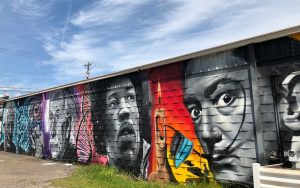 Our previous mystery, “Maybe our most difficult mystery yet,” must not have been that tough, thanks to anyone who knows how to do an image search via ye olde Internet. The mural of Anthony Bourdain, Albert Einstein, Jimi Hendrix and Salvador Dali is on the side of the empty Roumillat’s antiques building on Savannah Highway in West Ashley.
Our previous mystery, “Maybe our most difficult mystery yet,” must not have been that tough, thanks to anyone who knows how to do an image search via ye olde Internet. The mural of Anthony Bourdain, Albert Einstein, Jimi Hendrix and Salvador Dali is on the side of the empty Roumillat’s antiques building on Savannah Highway in West Ashley.
Allan Peel of San Antonio, Texas, told us all about the mural, painted by Garrett Mallekoote: “The mural consists of four separate panels depicting the images of four highly influential people from the arts and science community, namely Anthony Bourdain, Albert Einstein, Jimi Hendrix and Salvador Dali. I was unable to determine exactly when the mural was painted, but I do know that it was created in 2019, sometime after August 2019. How do I know? Well, Mallekoote’s Facebook page states that this particular mural was created in 2019, although a specific date is not referenced. So I examined past Google Maps Street View images of the building at 2241 Savannah Hwy, images of which exist as far back as October 2011. The mural was not present between October 2011 and August 2019. Therefore it must have been created sometime between August 2019 and December 2019.
“So just who is the artist who created the mural? It is Garrett Mallekoote, who currently lives in Charleston, but was originally from Fort Mill, S.C. A United States Marine Corp veteran, Mallekoote is a freelance artist as well as a professional tattoo artist specializing in neo-traditional and black and grey tattoos. He currently works at Charleston Tattoo Company and has been perfecting his tattooing skills since 2017. Mallekoote is the winner of a number of awards bestowed upon him through the tattoo artist community at tattooawards.com. As of today, this community of artists has awarded Mallekoote with 52 separate awards, and I expect that number will continue to grow.”
Thanks Allan! And hats off to all of the others who identified the mural: Charlene Johnson of Beaufort; Legare Clement, Kristina Wheeler and Peggi Angel, all of Charleston; Amanda Tello of Port Royal; Marnie Huger of Richmond, Va.; Holly Bryan of Johns Island; Don Clark of Hartsville; George Graf of Palmyra, Va.; Jay Altman of Columbia; Berry Davenport of James Island; and Jason White.
- Send us a mystery: If you have a photo that you believe will stump readers, send it along (but make sure to tell us what it is because it may stump us too!) Send it along to editor@charlestoncurrents.com.
More county parks are open
Staff reports | Six additional county parks opened Friday to join another dozen opened earlier this month. Now open are:
- Cooper River County Park
- Folly Beach County Park
- Folly Beach Pier
- Lighthouse Inlet Heritage Preserve
- McLeod Plantation Historic Site (self-guided tours only at this time)
- SK8 Charleston
- More info: CharlestonCountyParks.com
![]() If you want to do some inside visiting, check out these area institutions:
If you want to do some inside visiting, check out these area institutions:
- Critter Calls. The South Carolina Aquarium has this new offer designed to make the ubiquitous virtual meeting a bit more fun. Critter Calls provides a 15-minute appearance by one of the Aquarium’s ambassador animals. More.
- Gibbes Museum. You can enjoy lots of local art offerings through the website and social media accounts of the Gibbes Museum. AT 10 a.m. on weekdays, the museum posts virtual readings and workshops on Facebook. Find more online.
- Charleston Museum. You can have all sorts of fun and learn something too by visiting the museum virtually. More info: Charleston Museum.
- Brookgreen Gardens. The Murrells Inlet gardens have a new set of activities, #BrookgreenAtHome, that you can do, well, from home. The staff offers materials, directions and examples. Post to social media with the tag when done.
- Avian Conservation Center. Access videos and live streaming presentations online to learn about what’s going on at the Center for Birds of Prey.
There’s also a whole virtual world out there to find and enjoy. Some good ones:
- LONDON: British Museum, which has mummies and lots of treasures;
- LONDON: Tate Modern, which has lots of neat exhibitions.
- NEW YORK: Metropolitan Museum of Art, with collections of 5,000 years of art.
- NEW YORK: Solomon R. Guggenheim Museum with its dazzling displays of modernism.
- More. You can visit 500 museums across the world online through this Google amalgamation of sites.
Online jazz: Forte Jazz Lounge in downtown Charleston is offering music enthusiasts the chance to watch live shows online through virtual ticketing with suggested donations of $10. The feed starts about 15 minutes before shows. When the virus scare is done, all donors will be invited to a big party blowout at the club with the Joe Clarke Big Band. Learn more.
Aquarium online. The S.C. Aquarium is expected to offer a daily Nature Challenge, a virtual “Passport to Fun” and a “Moment of Zen” starting this week online. It also offers daily education classes at 10 a.m. and 2 p.m., Monday to Friday, via its virtual network. Learn more.
- Read here to learn more about the Aquarium’s new Solo Sweep Challenge litter clean-up effort.
Virtual tours: Bulldog Tours is providing virtual tours of the city of Charleston daily at 2 p.m., according to sister publication Charleston City Paper. So far, tours have been to Washington Square, Fort Lamar and the old City Jail. Learn more.
Plugged In To History. Middleton Place offers this new digital content portal that offers streamed content on living history, heritage breeds, crafts and even past drinks and social practices (appropriately on Friday at 5 p.m.). More.
- If you have any online events, drop us a line (editor@charlestoncurrents.com) and make sure to put “Online event” in the subject line. Similarly, if you’ve got cool ideas for stuff to do while in isolation at home, send them our way.
William Washington
Revolutionary War soldier William Washington was born on February 28, 1752, in Overwharton Parish, Stafford County, Virginia, the son of Bailey Washington and Catherine Storke, and he was a second cousin of President George Washington. Having no middle name, he is often confused in history with his distant cousin William Augustine Washington (1757–1810). At the outbreak of the Revolutionary War, in 1775 he was elected a captain of Stafford County Minutemen, which was integrated into the Third Virginia Regiment in 1776. After marching north with his unit later in the year, Captain Washington led a successful charge against a Hessian artillery battery at the Battle of Trenton on December 26, 1776. Wounded in this action, he was rewarded with a promotion to major of the Fourth Regiment of Continental Light Dragoons.
By the end of 1779 Washington had advanced to the rank of lieutenant colonel, commanding the Third Regiment of Continental Light Dragoons, and was ordered to join the patriot forces of General Benjamin Lincoln in Charleston, South Carolina. By March 1780 Washington’s regiment was detached with the light forces near Moncks Corner to reconnoiter and screen against the advancing enemy. On March 26, 1780, he had his first encounter with British Lieutenant Colonel Banastre Tarleton near Rantowle’s Bridge. Washington’s command was soundly defeated by Tarleton at Moncks Corner on April 14 and again at Lenud’s Ferry on May 5.
After refitting in North Carolina, Washington captured Rugeley’s Fort near Camden and then defeated a marauding band of Tories at Hammond’s Old Store in the Little River District later in the year. On January 17, 1781, Washington commanded a combined cavalry force at the Battle of Cowpens that was instrumental in the victory there. For his intrepidity in this engagement, Congress awarded him a silver medal. Always at the head of his regiment, Washington fought valiantly at Guilford Courthouse, North Carolina, in March and, on returning to South Carolina, at Hobkirk Hill in April. At the Battle of Eutaw Springs on September 8, 1781, he was seriously wounded while leading a charge and was subsequently captured by the enemy. The British commander in the South, Lord Cornwallis, would later comment that “there could be no more formidable antagonist in a charge, at the head of his cavalry, than Colonel William Washington.”
As a prisoner of war, Washington spent the remaining war years in Charleston. There he married Jane Reily Elliott on April 21, 1782, and consequently gained Sandy Hill plantation and other properties in St. Paul’s Parish. The marriage produced two children. Pursuing the life of a successful lowcountry planter, Washington represented the parish in the General Assembly from 1787 to 1804. He also accepted a post as brigadier general commanding the Seventh Brigade of state militia in 1794. During the anticipated hostilities with France in 1798, he was appointed a brigadier general in the U.S. Army commanding South Carolina and Georgia, serving until 1800. After a lingering illness, Washington died on March 16, 1810.
— Excerpted from an entry by Samuel K. Fore. This entry may not have been updated since 2006. To read more about this or 2,000 other entries about South Carolina, check out The South Carolina Encyclopedia, published in 2006 by USC Press. (Information used by permission.)
If you like what you’ve been reading, how about considering a contribution so that we can continue to provide you with good news about Charleston and the Lowcountry. Interested? Just click the image below.
OUR UNDERWRITERS
Charleston Currents is an underwriter-supported weekly online journal of good news about the Charleston area and Lowcountry of South Carolina.
- Meet our underwriters
- To learn more about how your organization or business can benefit, click here to contact us. Or give us a holler on the phone at: 843.670.3996.
OUR TEAM
Charleston Currents offers insightful community comment and good news on events each week. It cuts through the information clutter to offer the best of what’s happening locally.
- Mailing address: 1316 Rutledge Avenue | Charleston, SC 29403
- Phone: 843.670.3996
Charleston Currents is provided to you weekly by:
- Editor and publisher: Andy Brack, 843.670.3996
- Contributing editor, common good, Fred Palm
- Contributing editor, money: Kyra Morris
- Contributing editor, Palmetto Poem: Marjory Wentworth
- Contributing editor, real estate: Digit Matheny
- Contributing photographer: Rob Byko
SUBSCRIBE FOR FREE
Subscriptions to Charleston Currents are free.
- Click here to subscribe.
- Unsubscribe. We don’t want to lose you as a reader of Charleston Currents, but if you must unsubscribe, you will have to do it through the email edition you receive. Just go to the bottom of any of your weekly newsletters and click the “unsubscribe” function. If that doesn’t work, please send us an email with the word “unsubscribe” in the subject line.
- © 2008-2020, City Paper Publishing, LLC. All rights reserved. Charleston Currents is published every Monday by City Paper Publishing LLC, 1316 Rutledge Ave., Charleston, SC 29403.


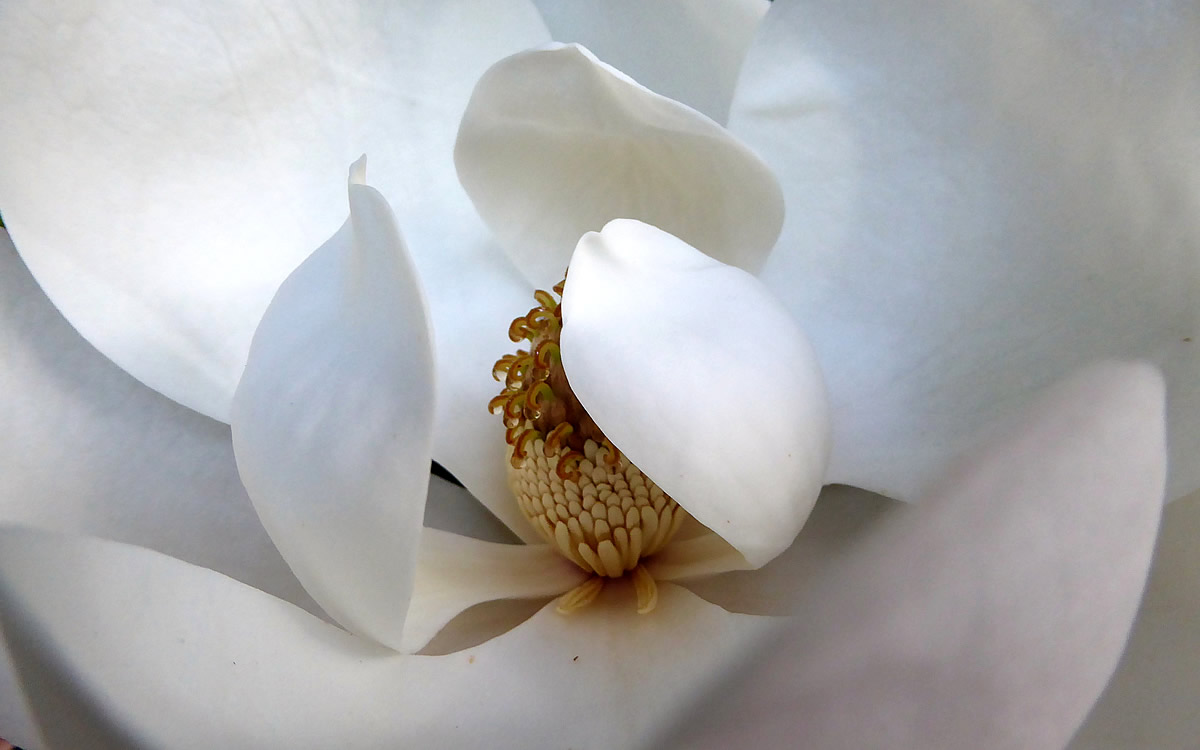

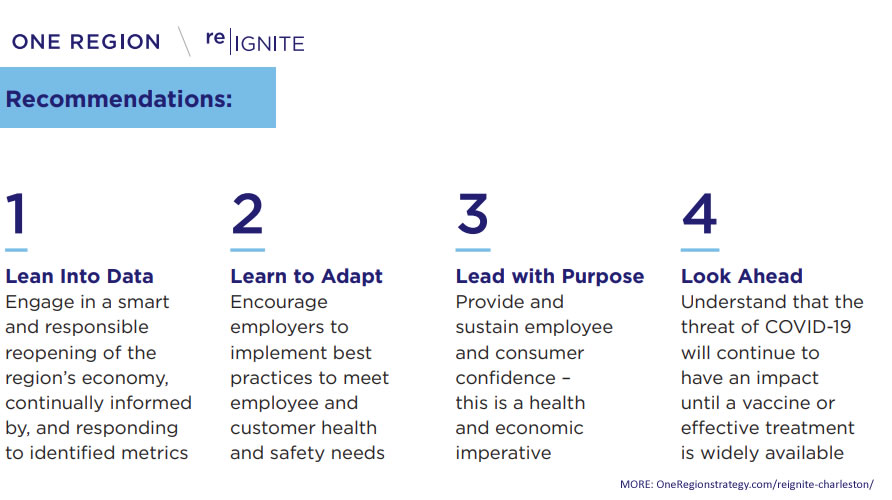

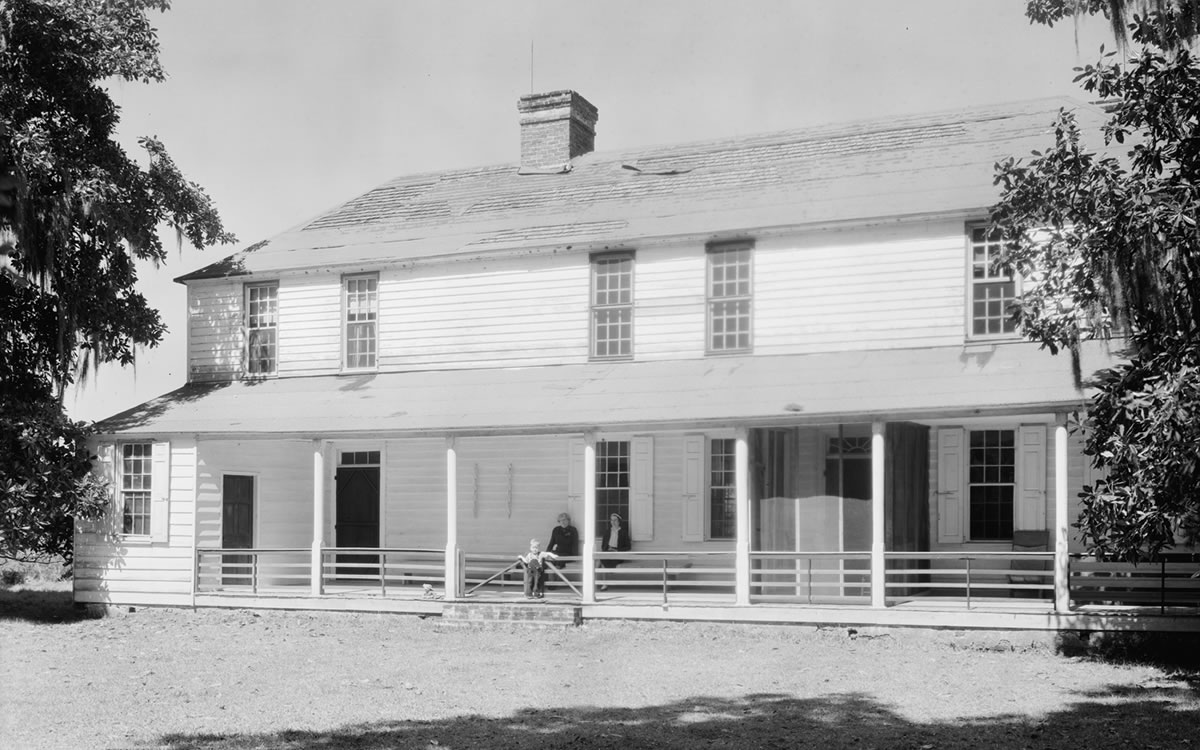
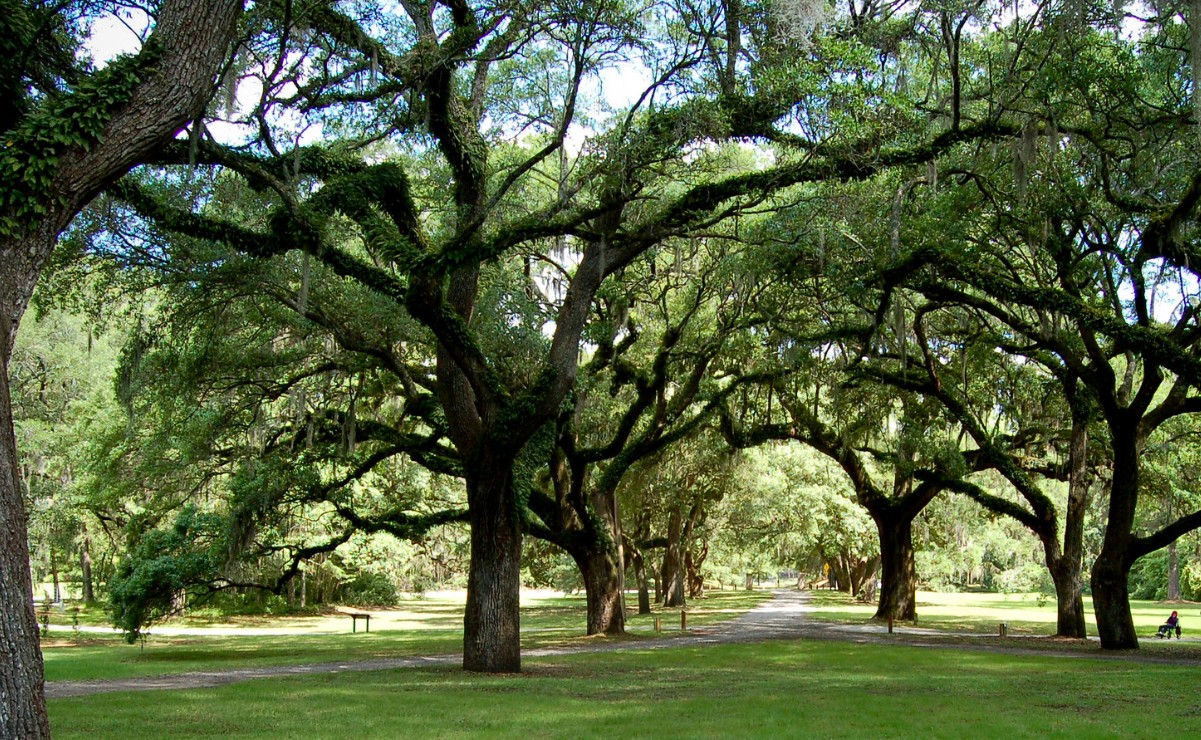
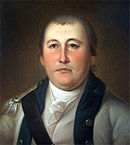

 We Can Do Better, South Carolina!
We Can Do Better, South Carolina!
























